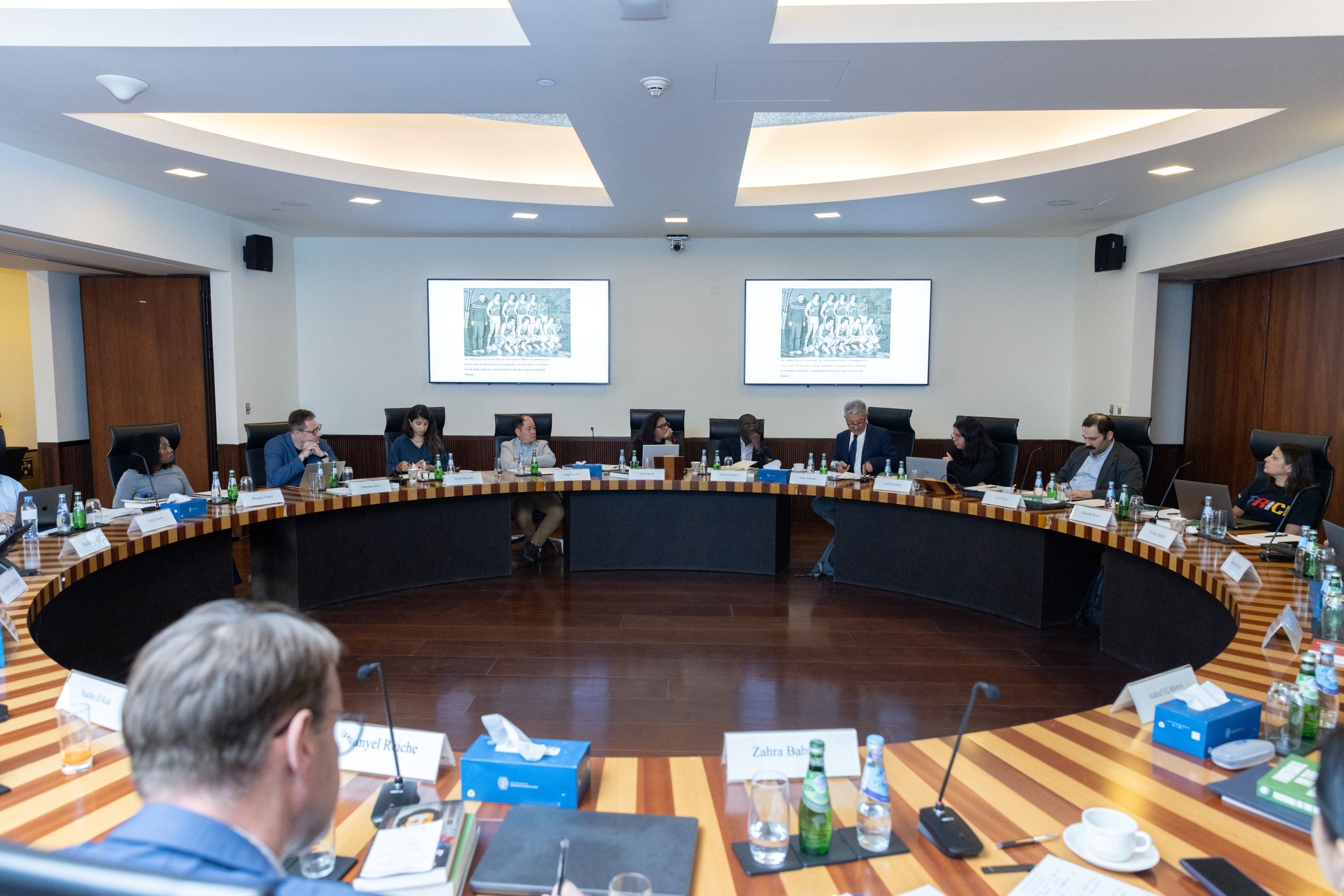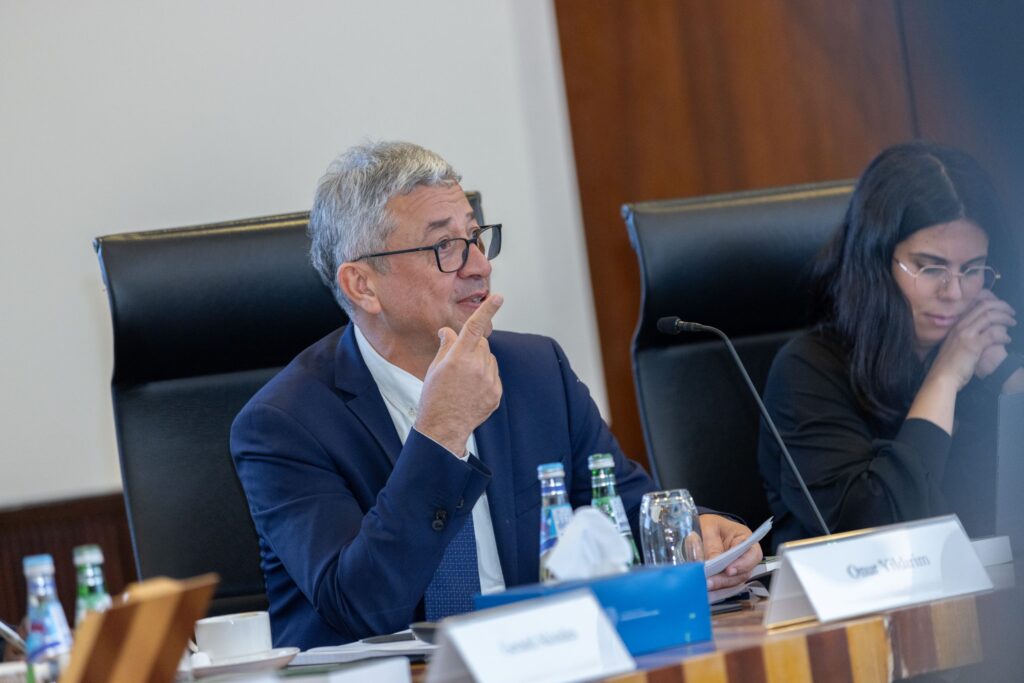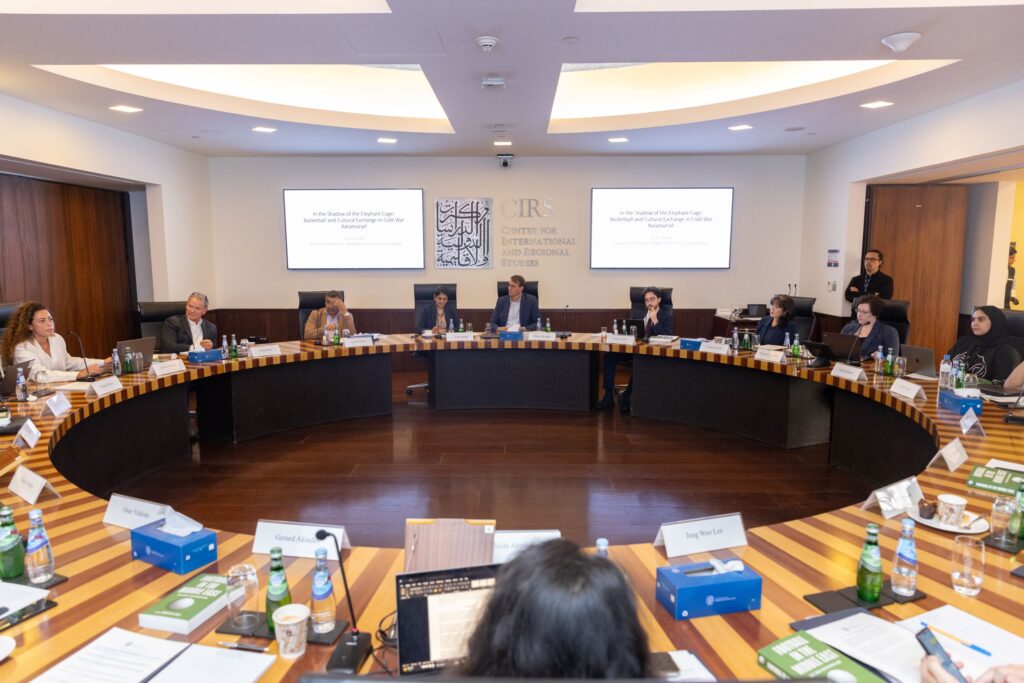Georgetown University in Qatar Hosts Inspiring Panel on the Growth and Challenges of Women’s Basketball in the Middle East – Georgetown University in Qatar

In a thought-provoking panel discussion hosted by Georgetown University in Qatar (GU-Q), international sports scholars and experts shed light on the transformative journey of women’s basketball worldwide, with a particular focus on the Middle East’s unique challenges and opportunities in the sport.
The event featured a discussion with Dr. Lindsay Sarah Krasnoff, a visiting Clinical Assistant Professor at NYU’s Tisch Institute for Global Sport, and Assile Toufaily, a PhD candidate studying the sociocultural dynamics of women’s football in Lebanon and France, moderated by Dr. Danyel Reiche, visiting research fellow, GU-Q. Together, the speakers brought fresh perspectives on the cultural, diplomatic, and social impact of women’s basketball.
Event Highlights and Key Insights:
Emerging from a Center for International and Regional Studies research project titled America’s Game in the Middle East: The 2027 Qatar Basketball World Cup, led by Dr. Reiche, the panelists contributed critical insights on the global importance of Women’s basketball.
Krasnoff opened the discussion by reflecting on the recent Paris summer games, where women’s basketball captivated record-breaking audiences, achieving a 170% increase in viewership compared to the previous year. She also highlighted basketball’s significance outside of the West, particularly in Senegal, where the women’s national team has historically been a dominant force. “For Senegalese basketball executive Amadou Gallo Fall, the women’s national team stands as a profound symbol of national pride and identity,” she shared.
Toufaily added insights rooted in the Middle Eastern context, detailing how cultural and religious factors have historically limited women’s participation in sports. Noting that the first women’s basketball team in the Middle East was established only in the 1940s, Toufaily illustrated the infrastructure gap compared to Western nations. However, she pointed to social media as a transformative force, allowing young women in the region to see role models in sports and encouraging them to pursue their passions. Toufaily emphasized that increased investment in women’s sports globally, especially in North America, is beginning to positively impact the Middle East. “These investments challenge entrenched restrictions and inspire aspiring players in Lebanon and Jordan who have competed in U.S. college basketball and dream of developing the sport back home,” she remarked.
Regional Conflict and Future Prospects
When asked how the ongoing conflicts in Gaza and Lebanon might affect sports development, Toufaily acknowledged that prolonged conflict could disrupt league play and player growth. However, she expressed optimism that Qatar’s hosting of the 2027 FIBA World Cup could act as a catalyst for basketball’s regional popularity. “If Qatar were to also host a women’s World Cup, it would inspire a generation of young girls, setting the stage for a robust grassroots foundation and a brighter future for women’s basketball in the Middle East,” she said.


The panel offered an insightful look at the evolving role of women’s basketball as a vehicle for cultural exchange, national pride, and social change. The event was the conclusion to a two-day working group meeting at CIRS which gathered experts who are working on a publication examining U.S. engagement in the Middle East through the lens of basketball. Following the successful publication of several books and articles emerging from the CIRS research project on the Qatar FIFA World Cup 2022, GU-Q is set to provide timely insight leading up to the 2027 FIBA World Cup in Qatar.
Related
Qatar emphasizes importance of reaching agreement between US, Iran
CAIROQatar's Prime Minister Sheikh Mohammed bin Abdulrahman Al-Thani stressed the critical need for an agreement between the US and
International Women’s Day: Seeking a Balance with Ghada Al Subaey
1309’s Ghada Al Subaey of Qatar celebrates the many layers of femininity in her recent drop, called Labyrinth of Light. This International Women’s Day, the
Discover Ooredoo Plans and Services in Qatar
Ooredoo is the household name in the field of telecommunications and provides a full portfolio of telecom services: mobile plans for everyone, home
What Will The Imminent Qatar Airways Widebody Order Include?
Which Airline Alliance Do You Prefer To Fly With?












